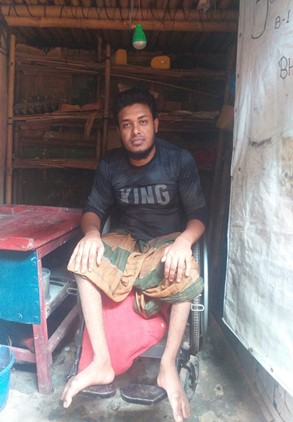
The project's goal is to put into practice a new rights-based strategy for accountability and involvement to improve the delivery of sexual, reproductive, and maternity health (SRMH) services to Rohingya women and girls in Cox's Bazar, Bangladesh.
The Rohingya refugee women and girls living in Cox's Bazar, Bangladesh, members of the Health and Protection Cluster and Sub-Sector Working Groups, and UN (United Nations) agencies providing comprehensive SRMH services and information in the camps are the intervention's target audience. The intervention's goal is to ensure that Rohingya women and girls are free from all forms of discrimination and have equal access to comprehensive, high-quality, necessary, and lifesaving SRMH services.
This project initiatives also aim to demonstrate and document how community-led accountability systems and rights-based services can strengthen health systems and improve SRMH outcomes for Rohingya women and girls, so that other humanitarian programmers will think about incorporating these strategies into their own humanitarian efforts.

Ukhiya FDMN (Forcefully Displaced Myanmar Nationals) camp-15
Target Population through outreach activities 35000
17170 Population reached through 4047 Household visits
6070 Population reached through 607 Sessions

Anowar Hossain is a disabled 29-year-old Rohingya man. He was unable to move or carry out any task on his own. He was deprived of access to basic requirements like the right to healthcare, health education, and other social activities as well. Even family members and members of the community gave him less attention. He gradually begins to disbelieve himself, regret himself, and experience stress and depression.
With the assistance of the Community Facilitator of the CRR Project of the Care Bangladesh Organization, he joined the adult male group. He attended monthly adult group sessions for men where he learned various forms of information about the availability and accessibility of health services, personal hygiene, SRH rights, and community feedback mechanisms. Later, a community facilitator put him in touch with a handicap organization, and that agency provided him with mobility aid and other services. He also learnt about the rights and services related to sexual, reproductive, and maternal health (SRMH) through the community facilitator. With this information, he was able to alter his approach to pursuing SRMH and apply it to his daily activities.
He is now participating in many sessions and community events, and he is valued by both the community and his family. He now feels better and is more confident after regaining his dignity. He thanked the CARE team for their help: “CARE has my deepest gratitude. They aided in my recovery, and I give Allah the glory for my present circumstances."
© Copyright 2026 CARE Bangladesh. Powered By Bangladesh Online